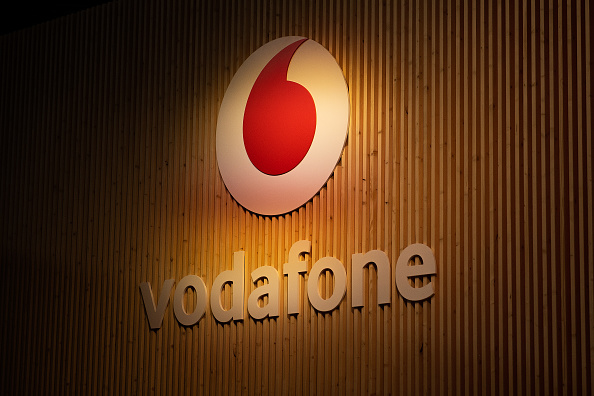Vodafone CEO: A merger with Three isn’t a threat to national security or competition

Everybody’s talking about tech. From experimenting with Chat GPT to getting excited about Apple’s VR headset, tech is part of our national conversation.
New research suggests that today over half of us believe that technology can make our lives easier. We’re seeing a real belief in its potential to improve society, whether that’s the streets we walk down, the trains we travel on or how we look after one another.
This enthusiasm for a digital society is one of the reasons our proposed combination with Three UK matters. Together, we would have the scale to accelerate investment in the UK’s digital future.
I want to reiterate some of the reasons why we think this merger would be great for customers, great for competition, and great for the country.
Some commentators say that the merger would mean four big telco providers reducing to three and that this would reduce competition. But while that might seem logical, it’s not the right way to look at it.
At the moment, we have two big, dominant players in the UK market: BT/EE and Virgin Media O2 (VMO2). A merged Vodafone UK and Three UK would give these two a healthy dose of competition that would force them to up their game, to the benefit of all customers. We’d have three big players vying for customers in broadband and mobile, not just two.
We know this can work because we’ve seen it happen over in the US. When T-Mobile and Sprint merged it put pressure on rivals AT&T and Verizon, resulting in a massive increase in 5G investment by all of the operators.
And this increased competition would apply to the wholesale market, too. As it stands, Mobile Virtual Network Operators (MVNOs), like Tesco Mobile and Plusnet, have to pay EE and O2 to use their mobile networks, as Lebara and Asda do to use ours.
But BT/EE and VMO2 have about 90 per cent of MVNOs using their networks. The addition of Vodafone UK and Three UK as a merged, much bigger wholesaler, would give these MVNOs more choice, and that inevitably would boost competition. It would be a win-win for customers.
Merging with Three would give us the scale we need to build one of Europe’s best 5G networks, which would drive innovation, create jobs, and boost the economy. And we’d be able to accelerate the roll-out of network improvements to all corners of the UK.
Vodafone customers would also benefit from access to Three UK’s Fixed Wireless Access broadband technology, giving them access to high-speed broadband in areas where full-fibre hasn’t yet reached or may never be able to reach.
As separate companies, we simply don’t have the resources to make the size of investment the country needs to fulfil its digital potential.
Our customers would instantly benefit from faster connectivity speeds over an even more reliable network, all for the same price. This despite the fact that data consumption is rising inexorably – up 400 per cent since 2016 – as more of our lives are lived online.
As a converged player we’d also be in a better position to innovate and offer a greater choice of products to our customers with more flexibility on contracts.
The merged company plans to invest £11bn over the next 10 years – a significant sum that will drive economic growth, employment and innovation in support of the Government’s own Wireless Infrastructure Strategy.
Down the line, there may be synergies and savings as the two companies merge operations, but it’s far too early to say if this would result in job losses.
This merger is all about investment and growth to the benefit of customers and the country.
Much has been made of the fact that Three UK is owned by CK Hutchison Holdings, based in Chinese-controlled Hong Kong. Some commentators have suggested this presents a potential risk to the UK’s national security.
This is a very simplistic analysis. We already thoroughly protect the data of our customers big and small with strict security protocols. If we didn’t, our customers – some of which are big Government departments involved in national security – wouldn’t trust us to be their technology partner.
But they do, and we don’t win these contracts without being subjected to strict security vetting procedures, as is only right.
So just for the record, a merger of Vodafone UK and Three UK would not pose a threat to the UK’s national security.
Telecoms regulator Ofcom has acknowledged that as separate entities Vodafone UK and Three UK don’t have the scale to invest in building the digital networks this country badly needs. We don’t make enough ‘return on capital employed’, to use the financial jargon.
But together we would be strong enough to invest in these new networks to the benefit of customers and the country. It would result and greater competition, more choice for customers, and better service.